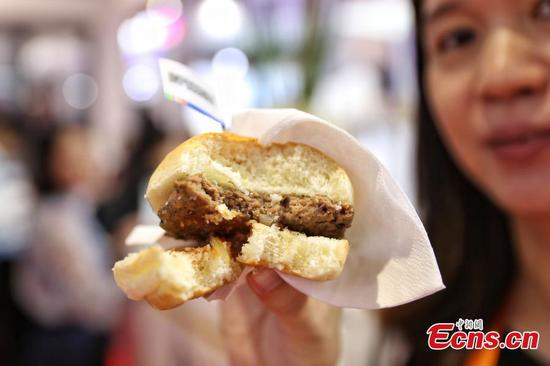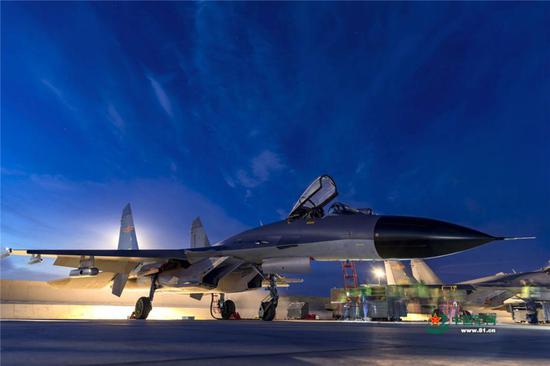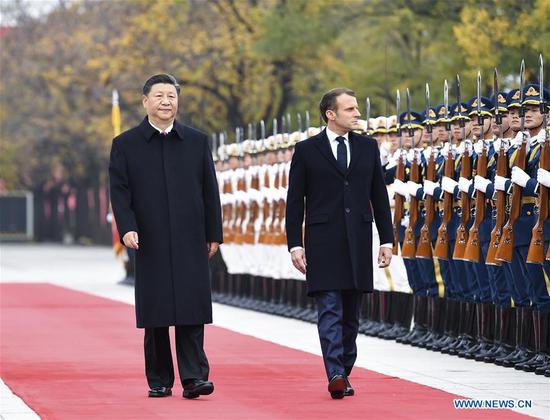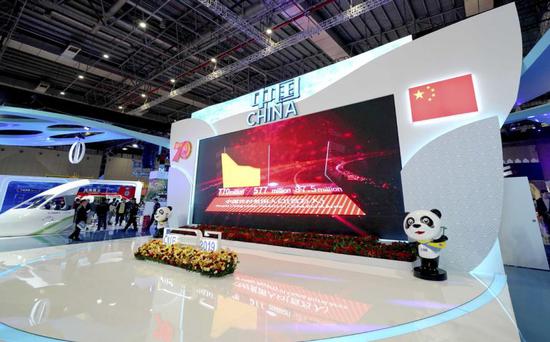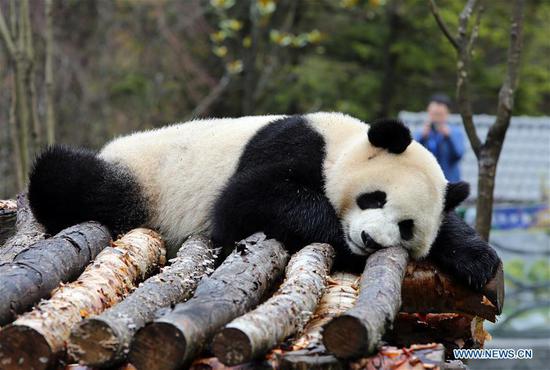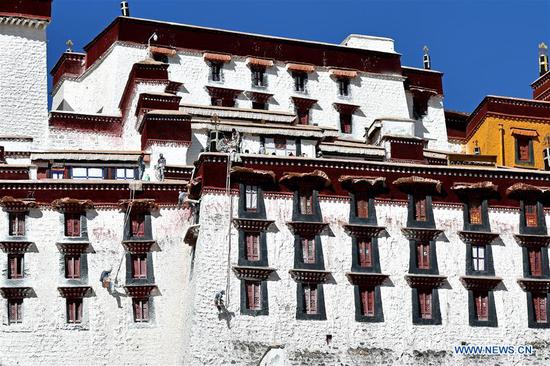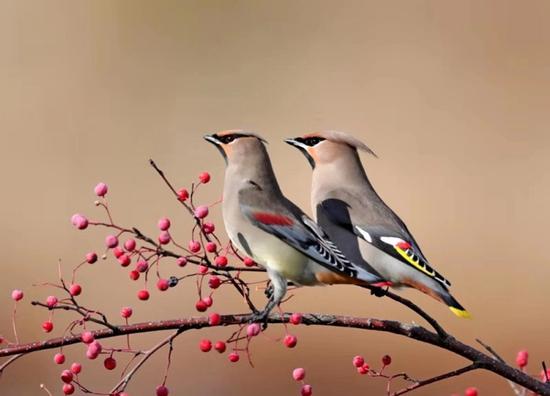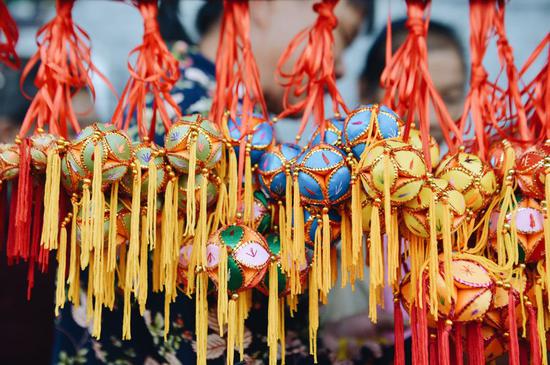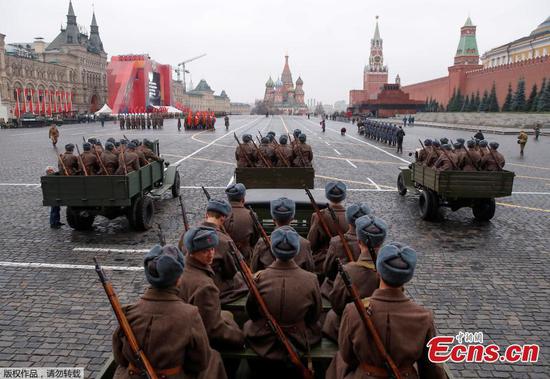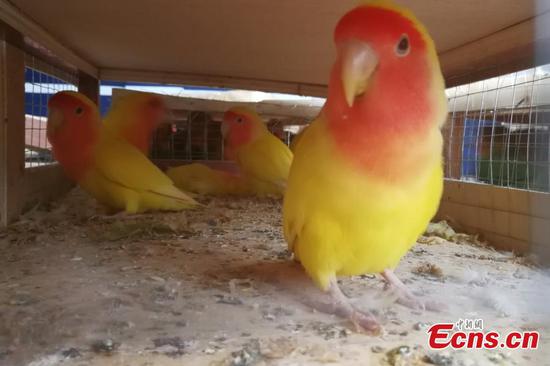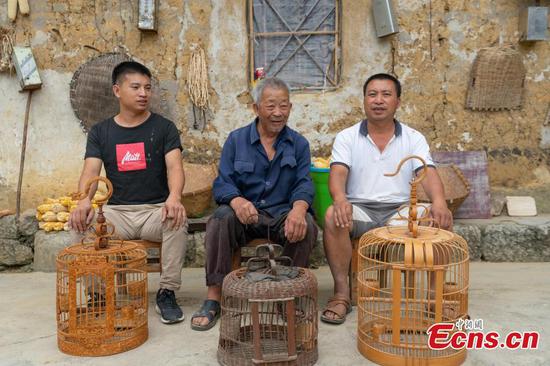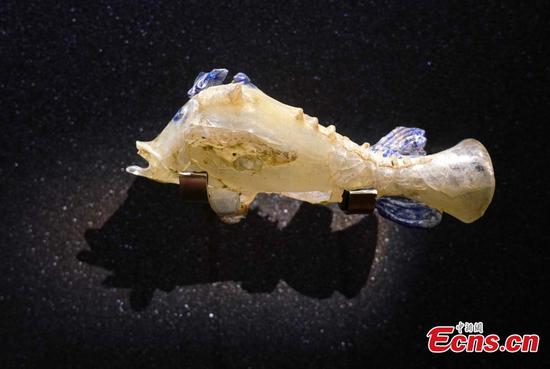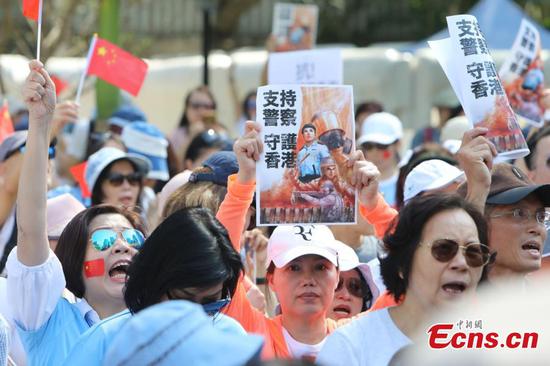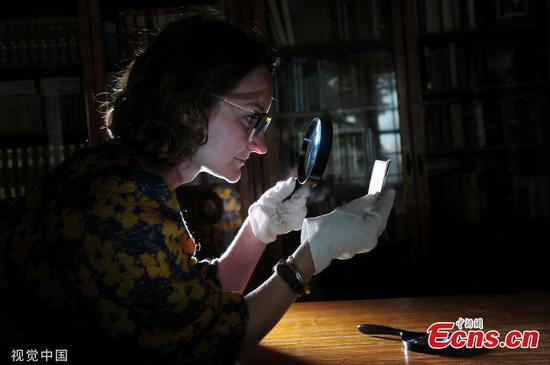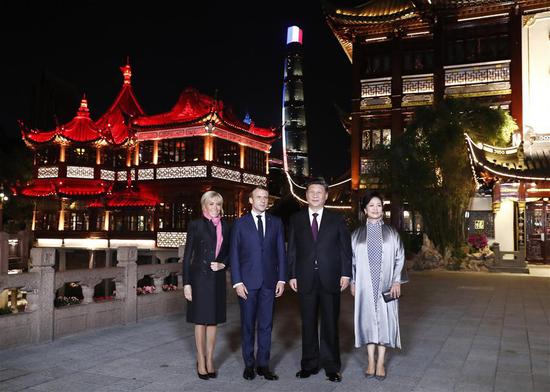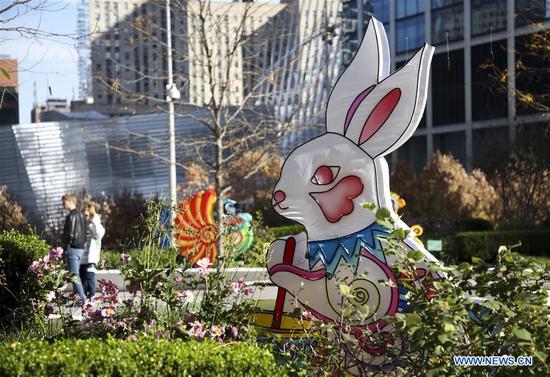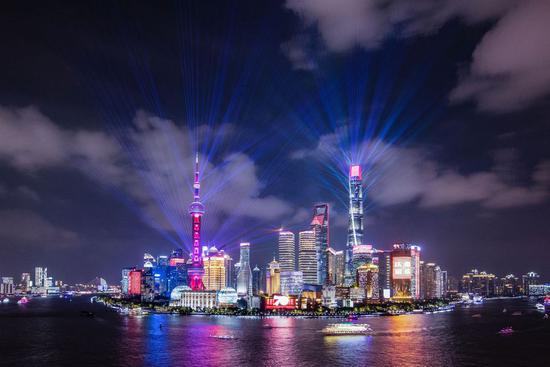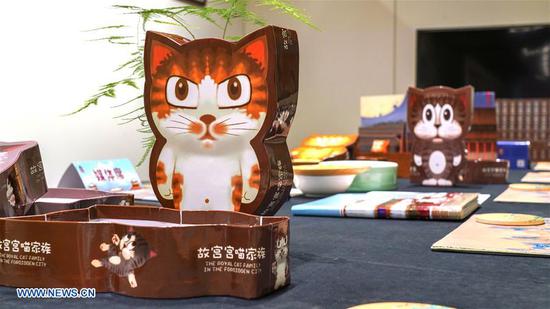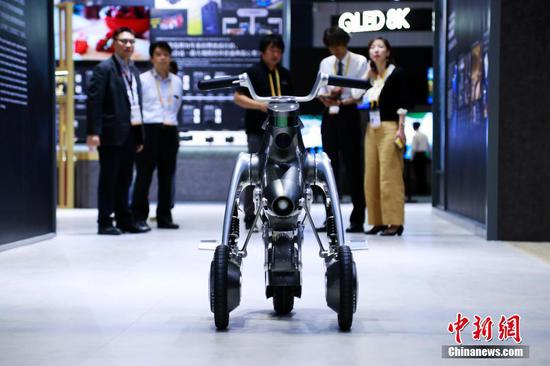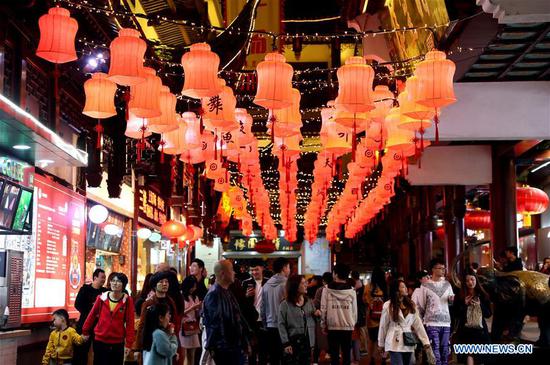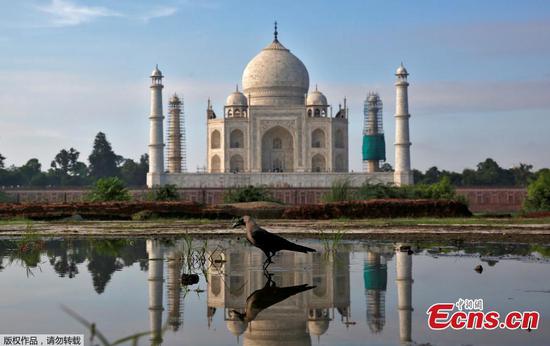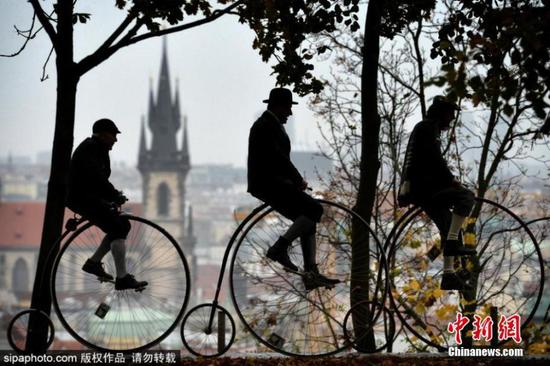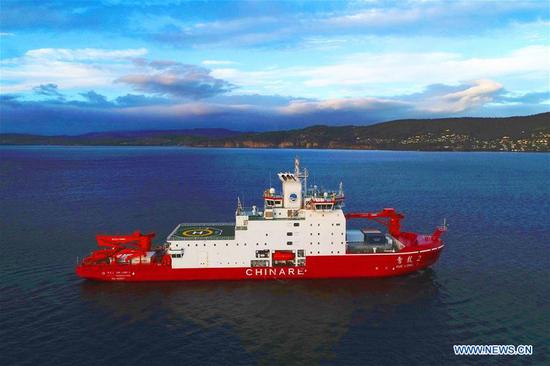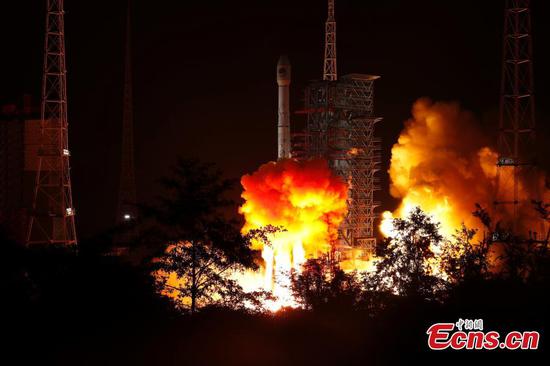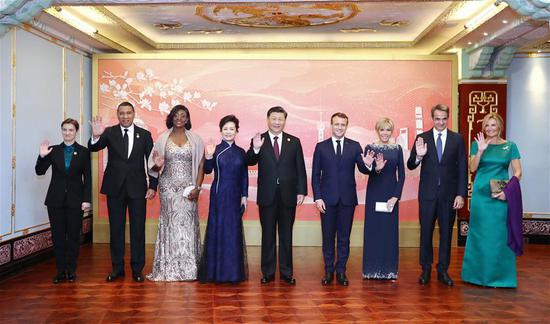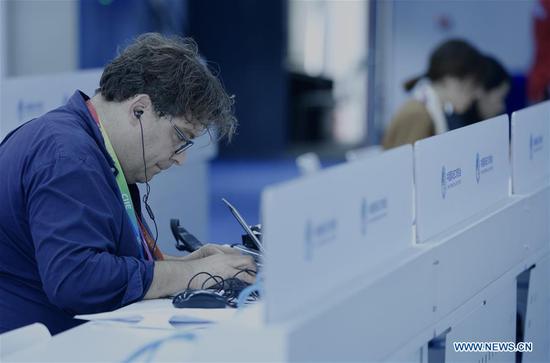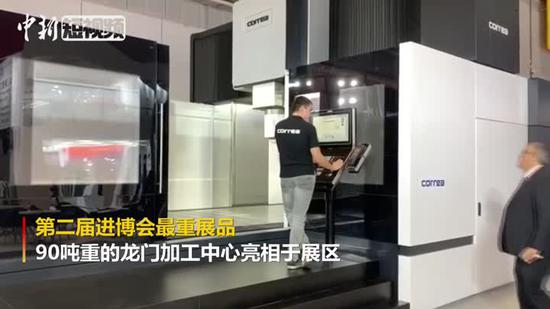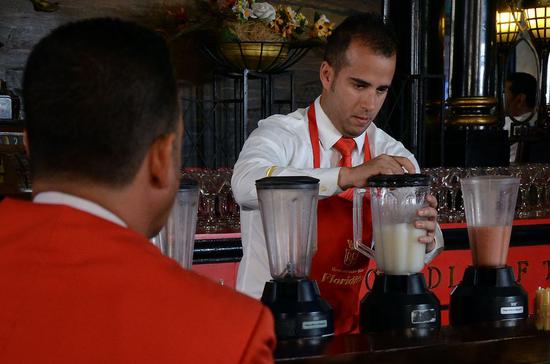
A Cuban bartender makes a cocktail during the eighth edition of the contest called "The King of the Daiquiri" in Havana, capital of Cuba, on July 14, 2016. (Xinhua/Joaquin Hernandez)
Cuban rum wants to capture the challenging Chinese market, where it will go head-to-head with popular local spirits.
It may be an uphill battle, but the rewards are worth it, said Sergio Valdes, director of market development at Havana Club International, a joint venture between the state-owned Cuba Ron Corporation and French alcoholic beverage maker Pernod Ricard.
"We are talking about a leading world economy, a very fast-growing market," Valdes, a regular visitor to China, told Xinhua.
While "the Chinese really have a high consumption of spirits," they favor "fundamentally national drinks," so claiming a slice of the local market is expected to be "tough," he said.
The company's representatives are now in Shanghai to promote their product line at the second China International Import Expo (CIIE), which opened on Tuesday.
Havana Club has selected three of its rums for the Chinese market: a three-year-old rum used mainly for mixing such cocktails as Mojito or Daiquiri; the "Anejo" aged seven years, which "the Chinese like to consume straight"; and the Masters Selection, consumed by Chinese aficionados of Habano cigars "who know the quality of traditional Cuban products," said Valdes.
Sales of the Havana Club have been on the rise for several years, both at home and abroad, driven by new marketing strategies and global sales of "Anejo." In 2018, sales of the corporation topped 4.7 million cases, an increase of 6 percent from 2017.
Cuban rum is among the top-selling spirits worldwide. "That takes on added meaning if we take into account that we cannot sell in the United States and that country represents 40 percent of the international rum market," noted Valdes.









